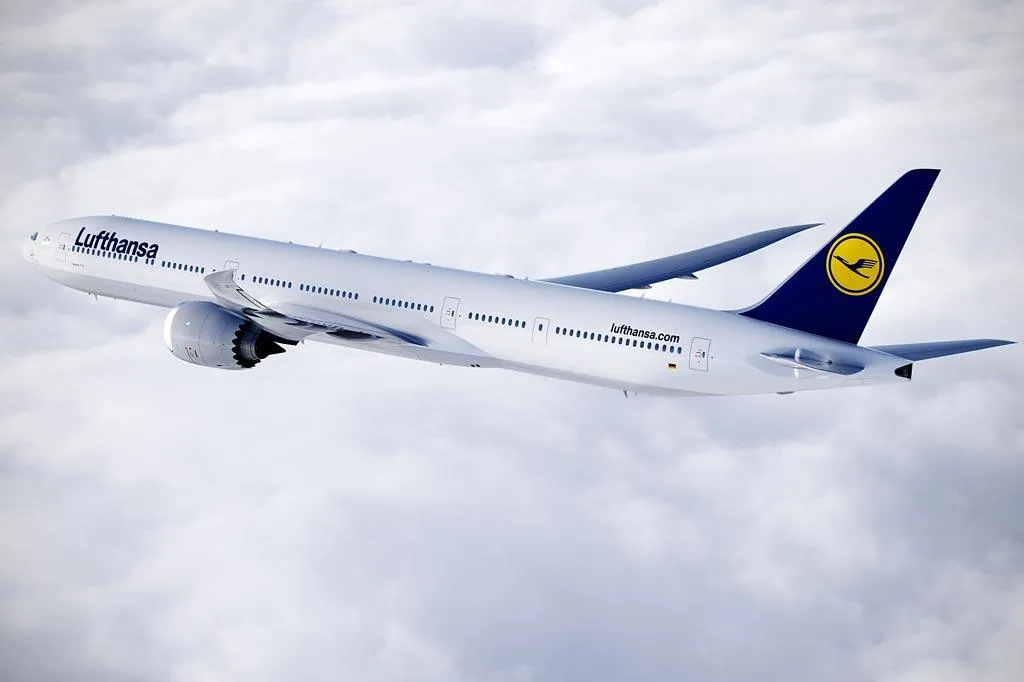
Lufthansa considers 787 and reveals 777X plans
Dec 02, 2018

Lufthansa is actively exploring the addition of Boeing 787 Dreamliners to its fleet, highlighting a strategic move to enhance its long-haul capabilities. The airline has also unveiled specific plans for the Boeing 777X, emphasizing its commitment to modernizing its aircraft lineup for improved efficiency and passenger comfort. This decision aligns with the industry's trend towards more fuel-efficient models, as Lufthansa aims to bolster its sustainability efforts while meeting increasing demand for international travel. The potential integration of these advanced aircraft positions Lufthansa to remain competitive in the evolving aviation market.
Lufthansa's Strategic Fleet Expansion
Lufthansa, one of Europe’s leading airlines, is making significant moves in its fleet strategy by considering the acquisition of the Boeing 787 Dreamliner while also revealing more about its plans for the Boeing 777X. This dual approach aims to enhance its operational efficiency, improve passenger experience, and maintain its competitive edge in the aviation market. The airline's focus on modern, fuel-efficient aircraft aligns with the growing demand for sustainability in air travel.
The Boeing 787 Dreamliner: A Game Changer
The Boeing 787 Dreamliner has gained recognition for its advanced technology and fuel efficiency. Lufthansa's consideration of this aircraft type highlights its commitment to sustainability and passenger comfort. With a composite fuselage and advanced aerodynamics, the 787 significantly reduces fuel consumption and greenhouse gas emissions compared to older aircraft.
Key features of the Boeing 787 include:
| Feature | Benefit |
|---|---|
| Fuel Efficiency | Lower operating costs and reduced environmental impact |
| Passenger Comfort | Improved cabin pressure and humidity levels |
| Advanced Technology | Enhanced navigation and safety features |
By integrating the 787 into its fleet, Lufthansa aims to offer passengers a superior travel experience while also adhering to environmental regulations and reducing its carbon footprint. This shift towards more efficient aircraft is part of a broader industry trend as airlines seek to modernize their fleets.
Lufthansa's 777X Plans
In addition to the potential addition of the 787, Lufthansa is also moving forward with its plans for the Boeing 777X. This aircraft represents the next generation of wide-body jets, promising even greater efficiency and capacity. Lufthansa has been one of the early adopters of the 777X, which is known for its cutting-edge technology and spacious cabin design.
The 777X is designed to enhance the airline’s long-haul operations and includes several key advancements:
| Feature | Benefit |
|---|---|
| New GE9X Engines | Up to 10% more fuel-efficient than current models |
| Wider Cabin | More space for passengers and improved comfort |
| High-Tech Wing Design | Improved aerodynamics for better performance |
Lufthansa has already placed significant orders for the 777X, which is expected to start entering service in the coming years. The airline's strategy focuses on using the 777X for high-demand long-haul routes, which allows for increased capacity while maintaining a high level of service.
Market Trends and Competitive Edge
The aviation industry is witnessing a shift towards more sustainable practices, and airlines are under pressure to adapt. Lufthansa’s dual strategy of considering the 787 and expanding with the 777X puts it in a strong position to respond to these trends. The airline's focus on fuel efficiency and passenger comfort is in line with the expectations of today's travelers, who prioritize both sustainability and quality.
Additionally, the competitive landscape requires airlines to differentiate themselves. By investing in modern aircraft like the Boeing 787 and 777X, Lufthansa aims to enhance its market position. The incorporation of these advanced aircraft will enable the airline to offer better service, attract more passengers, and ultimately drive revenue growth.
Conclusion: A Future-Oriented Approach
As Lufthansa navigates the complexities of the modern aviation landscape, its consideration of the Boeing 787 alongside the implementation of the 777X signifies a proactive approach to fleet management. By focusing on fuel efficiency, passenger experience, and sustainability, Lufthansa is not only preparing to meet current market demands but also positioning itself for future challenges.
The airline's commitment to investing in new technology underscores its role as a leader in the industry. As Lufthansa moves forward with these plans, it remains dedicated to providing exceptional service while reducing its environmental impact, which is increasingly important to today’s conscientious travelers.
In conclusion, Lufthansa's strategic decisions regarding the 787 and 777X reflect its ambition to remain at the forefront of the aviation industry, ensuring that it meets the evolving needs of its passengers while embracing a more sustainable future.
Related Articles

Explore Thailand: The Best Islands to Visit for Paradise, Adventure, and Relaxation

The Ultimate Guide to the Best Islands in Thailand for Your Next Getaway

Do babies need passports? How to get a passport for a newborn

How to get a U.S. passport fast: here’s how to expedite the process

What is Mobile Passport Control: 5 reasons why you should use it

SENTRI vs. Global Entry: A detailed guide

Do you need a passport to go to the Bahamas? Let’s find out

Do you need a passport to go to Mexico? A detailed guide

Do you need a passport to go to Canada? We got the answer

Do You Need a Passport for a Cruise: An Essential Travel Guide

Booster Seat Requirements: All the Rules to Follow in Your Rental Car

What Are the World’s Most Powerful Passports, and How Does Yours Rank?

How to Take a Passport Photo at Home: A Helpful Guide

You've got to have heart! Southwest's new livery

Your opinion: Should water be free on low cost carriers?

Young women bolder than guys as solo travellers
